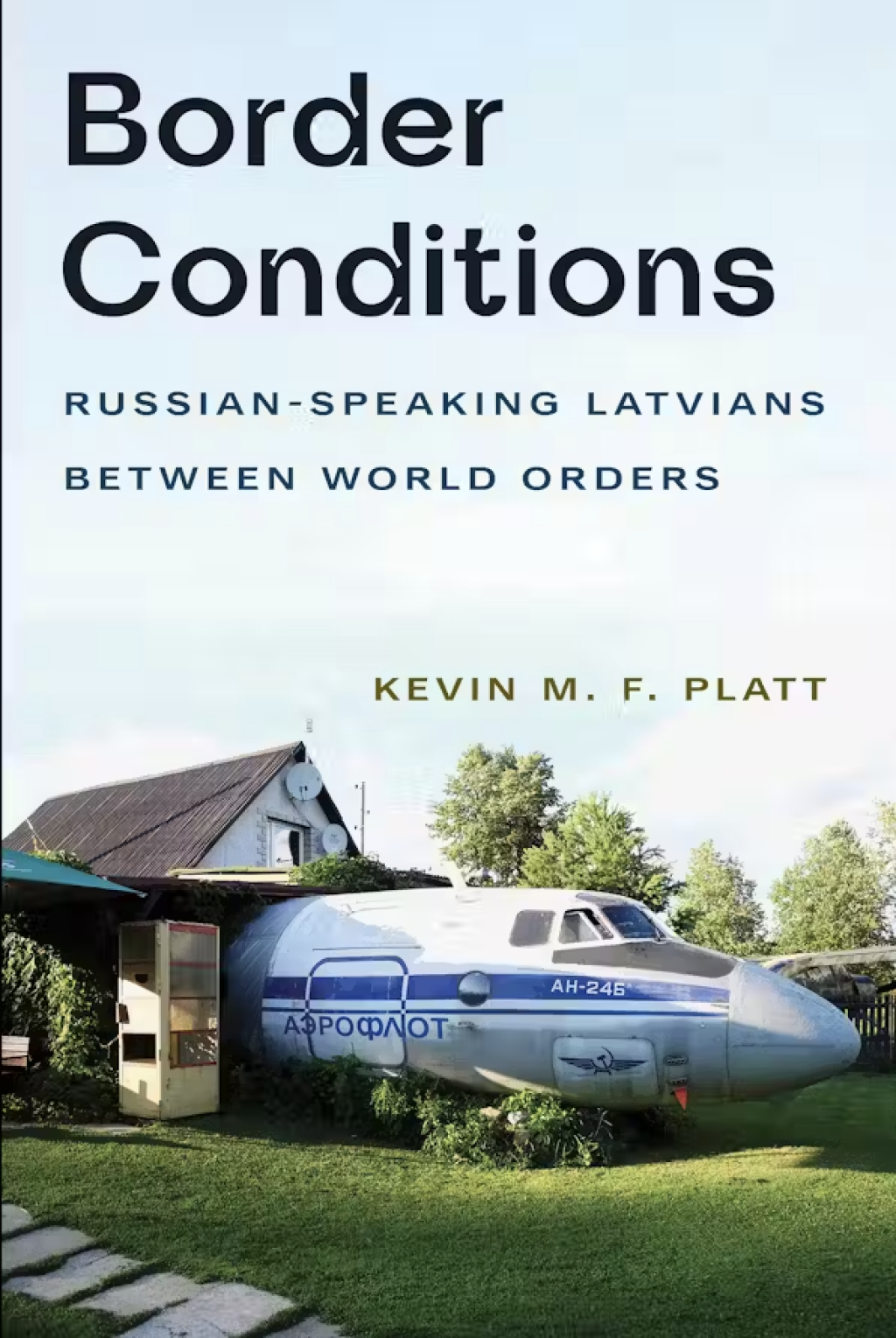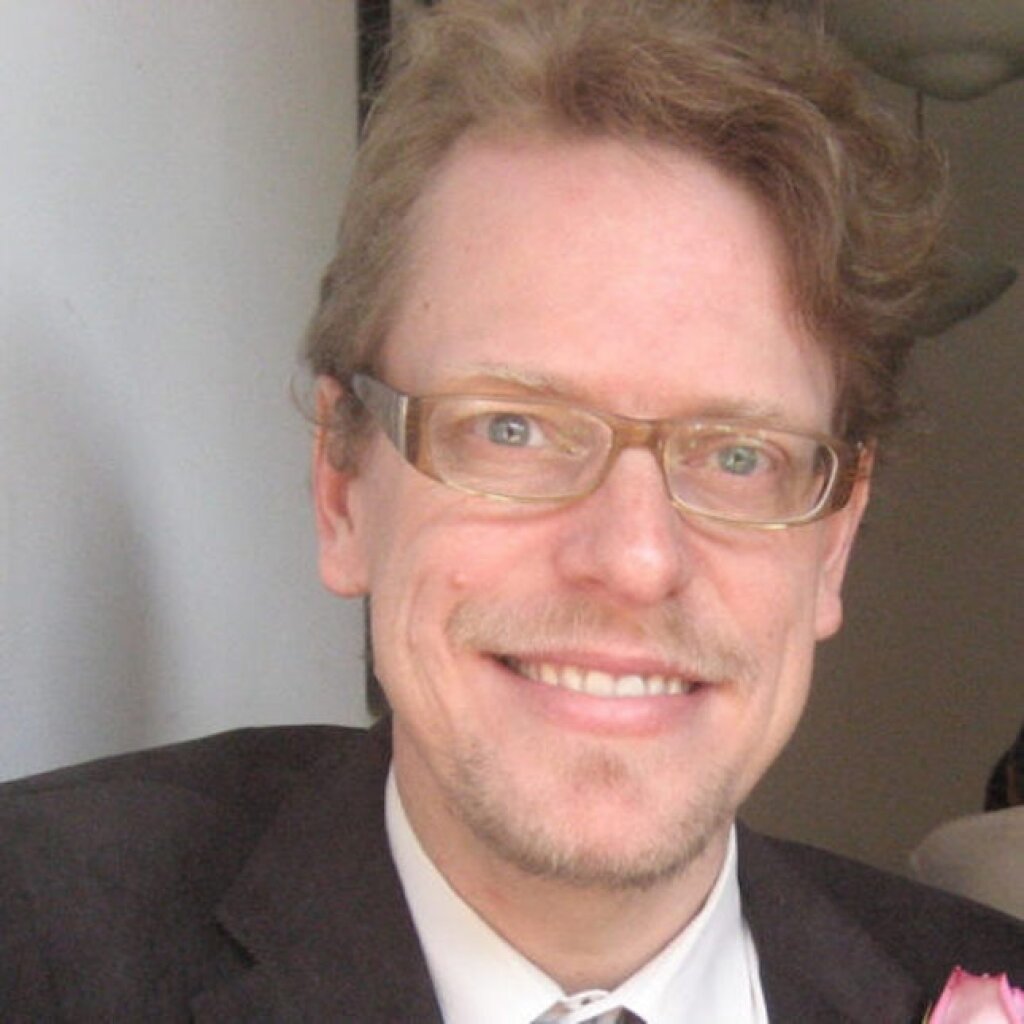Kevin M. F. Platt is Professor of Russian and East European Studies and Chair of the Doctoral Program in Comparative Literature and Literary Theory at the University of Pennsylvania. He is author or editor of a number of books, including Terror and Greatness: Ivan and Peter as Russian Myths (Cornell, 2011), Global Russian Cultures (Wisconsin, 2019), and, most recently, Border Conditions: Russian-Speaking Latvians Between World Orders (Cornell/NIUP, 2024). His current project is entitled Cultural Arbitrage in the Age of Three Worlds.
This post is an excerpt from Border Conditions: Russian-Speaking Latvians between World Orders by Kevin M.F. Platt, published by Cornell University Press. Copyright (c) 2024 by Cornell University. Used by permission of the publisher.
This post is Part II in a three-part series; Part I may be found here, and Part III will appear on 4/25.
When you first enter the “Lada” Krievu grāmatu bibliotēka/Russkaia biblioteka, the first thing that strikes you is the surfeit of books: piled on every available surface, stacked several rows deep in uneven ranges, cobbled together from used shelves and cabinets, which tower improbably up to the twenty-foot ceilings of a single, large groundfloor room in a nineteenth-century wood frame house in a courtyard off Ģertrūdes iela, in central Riga. At one time, I have been told, there were several tables with chairs near the door for patrons to use while reading and browsing the library’s holdings, which I estimate at some forty thousand volumes (since there is no full catalogue, there is no precise count). Now those tables and chairs are buried under heaps and mounds of books. Only one table has yet to be submerged in the printed word: that of the library administrator Gobruseva, the singular presence whose unwavering willingness to work on a volunteer basis has kept the library open six days a week, rain or shine, throughout the year, over the decade I have been visiting this dusty room.
The Russkaia biblioteka was created in 2001 on the basis of a predecessor organization, the Fond slavianskikh kul’turnykh obshchestv Latvii (Foundation for Slavic Cultural Communities of Latvia), which existed from the early 1990s and carried out a variety of public education projects. A subpage of the library’s out-of-date website, titled “History,” presents the Fond’s past activities in (perhaps exaggerated) heroic relief, describing it as “an informational center of educational and intellectual literature” that had “affiliates” in all major Latvian cities that were visited by “80–100 thousand people per year,” and an “open university” that organized seminars and courses on all manner of topics. According to the website, the Fond also participated in international book fairs in Latvia and in Moscow, published a Pushkin-themed literary journal and a literary supplement to the Baltiiskaia gazeta (Baltic newspaper), and much more.
In 2010, I met with the longtime leader of that organization, Elena Nadol’nik, for a wistful conversation that alternated between reminiscences of the Fond and the Russkaia biblioteka and discussion of her health difficulties and the hope she placed in a Russian Orthodox spiritual leader who had founded an ascetic community in Siberia based on rejection of the corruption of the modern world. The narrative of lost glory and civilizational downfall was a common thread in our conversation, linking cosmology, organizational history, and personal biography. As Nadol’nik explained, the library was brought into being following the dissolution of the Russkaia kniga (Russian Book) store and cultural center that had previously formed the core of the Fond’s activities, deriving revenue from the import and sale of textbooks from the Russian Federation for use in Russian schools in Latvia. Starting in the late 1990s, Latvian state regulation required that all educational materials be produced in Latvia, effectively eliminating this funding model. Books that remained from the Fond’s earlier activities were a part of the basis for the collections of the Russkaia biblioteka. Additional holdings were derived from the libraries of professional organizations dating to the Soviet era that were still in the process of liquidation in the late 1990s and early 2000s, and from donated books from private libraries. The Fond continued to function as the financial and institutional basis of the library until the original organization was dissolved in 2010, as Nadol’nik’s health began to fail and the Fond faced insolvency. At that time, the library was reconstituted as an independent organization under the direction of Gobruseva, its longtime chief administrator.
Gobruseva is a Latvian noncitizen, a retired former employee of the Komsomol (Communist Youth League) whose university degree was in library management. That the Russkaia biblioteka continues to exist today is largely due to her technical knowledge, her passion for Russian book culture, and her sheer willpower.
Gobruseva believes that library membership should not be a matter of money—as she told me, “Soviet people were used to reading for free.” Yet in this library, it is not entirely so. When I first started visiting the library in 2009, membership dues were set at six Latvian lats per year (about twelve dollars at the time). The price has remained more or less at this level over the years and in the transition to the euro—in 2014, yearly dues were ten euros. There are no late fees and users can take out a limited number of books at a time. Subscribing members total about two thousand, according to Gobruseva, although many patrons and subscription payments are highly irregular, rendering it difficult to say how many actual regular paying members there really are. One leitmotif of conversations with Gobruseva over the years has been her lament that there is barely enough money to keep going. Each year, somehow, the library persists.
The physical disposition of the books in the crowded space of the library corresponds to the relative relevance of its holdings for readers. The most accessible shelves, just behind Gobruseva’s desk near the entrance in a relatively broad walkway, hold cheap and well-worn editions of light reading, translations of Agatha Christie mysteries and Danielle Steel romance novels and the works of their Russian imitators Daria Dontsova and Ekaterina Ostrovskaia. The next, more cramped walkways, between towering shelves, hold school editions of classic Russian and foreign literature in translation, history, and textbooks on all manner of subjects. The library’s collection does, as declared on the website, include valuable and rare books—such as a coveted original edition of the Brockhaus and Efron Encyclopedia, a late imperial encyclopedia that combines the authority of its German founding partner, F. E. Brockhaus, with that of its Russian scholarly editorial and authorial collective, as well as Soviet-era academic editions of the collected works of classic Russian authors—yet these volumes are less accessible to browsing. Many are located on well-nigh inaccessible top shelves, stacked horizontally, suggesting that they are consulted by readers infrequently, if ever. A great many books remain boxed in the storage areas off the entryway. This has been the fate of Lenin’s complete collected works, which, as Gobruseva once explained to me (misremembering the edition’s number of volumes), no one ever requests. As she spoke, she stepped over to her desk and casually flipped up a calendar tacked to a shelf to reveal an image of a monument to Lenin, then quickly let the calendar drop back into place. The Russkaia biblioteka preserves layers of chronology and defunct ontologies like geological strata.
Examination of these defunct ontologies—consultation of many of these books—is perhaps beside the point, for the Russkaia biblioteka was designed not only as a lending library, but also as a means for the physical preservation of books as objects. The mission statement on the library’s website announces, “The library was created for the preservation of the best editions of past years. The library continues to receive as gifts a large number of valuable books, often sizable family libraries or the libraries of specialists from Riga and the Riga region.”
Twenty years after its founding, the continued flow of books to the institution is palpably evident: so many are donated that Gobruseva is unable to process and assimilate them all into the collection, with the result that the entrance area is perpetually clogged with stacks and boxes of books waiting to be sorted. In its earlier years, as may be gathered from statements on the website and from the events from 2004 that it still advertises, the library had broader aspirations to organize educational programs and cultural programming for Russophone Riga, continuing the enlightening activities of its predecessor organization. In 2005, for instance, Segal’ led reading groups at the library and helped judge an essay contest for Latvian schoolchildren devoted to topics such as “my favorite books” and “a happy person I know.” Yet in the decade I have been visiting the Russkaia biblioteka there has been little evidence of such activity, which, as Segal’ explained, fell by the wayside during the first years of the library’s existence, as it narrowed its focus to two chief missions: preserving and circulating Russian books in Latvia.



